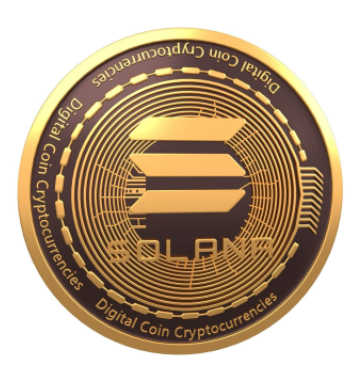Cryptocurrencies have been one of the most talked-about topics over the last few years. With the price of Bitcoin reaching an all-time high in 2020, it’s no surprise that more and more people are interested in investing in digital assets. However, cryptocurrencies including Bitcoin and Solana are not just about making money; they also have the potential to revolutionize the way we interact with the digital world—one area where this is particularly evident is the development of smart contracts.
What is a Smart Contract?
A smart contract is a digital contract stored on a blockchain and can be executed automatically. It means that once two parties have agreed to a contract, they can rest assured that the contract will be carried out exactly as agreed. This removes the need for a third party, such as a lawyer or notary, to oversee the contract, which can save time and money.
Solidity is a programming language specifically designed for developing smart contracts on Ethereum, one of the most popular blockchain platforms.
What are the Business Benefits of Creating Smart Contracts with Solidity?
There are many potential benefits of using smart contracts in business. Some of the most notable include:
• Cost savings: Smart contracts can automate tasks normally carried out by employees, such as processing invoices and payments. This can lead to significant cost savings for businesses.
• Increased efficiency: Smart contracts can help to streamline business processes, making them more efficient. For example, a contract can be set up to automatically release funds when certain milestones are reached in a project.
• Improved security: Smart contracts are stored on the blockchain, which is incredibly secure. This means there is no risk of lost or tampered with data, and businesses can be confident that their contracts will be executed as agreed.
Industries Benefiting from Blockchain Smart Contracts
The use of smart contracts is not limited to any one industry. However, some industries are particularly well-suited to benefit from this technology. These include:
• Supply chain management: Smart contracts can be used to track the movement of goods through the supply chain and automatically release payments when goods are delivered. This can help to improve efficiency and reduce the risk of fraud.
• Insurance: Smart contracts can be used to automate the claims process in insurance. For example, if a customer’s flight is delayed, their insurance policy could automatically trigger a payout.
• Real estate: Smart contracts can streamline the process of buying and selling property. For example, a contract could be set up to automatically transfer ownership of a property when the purchase price is paid.
How to Create Smart Contracts in Solidity
Creating smart contracts in Solidity is relatively straightforward.
Define the Purpose of the Contract: The first step is to define the purpose of the contract. This will involve specifying the conditions that need to be met to execute the contract. For example, a smart contract could be set up to release funds when a project reaches a particular milestone automatically.
Create a Wallet at Meta-Mask: To create a smart contract, you must create a wallet at Meta-Mask. This is a digital wallet that allows you to store Ether, the native currency of Ethereum.
Write the Contract Code: Once you have created a wallet, you must write the contract code. This can be done using any text editor. The code will need to be written in Solidity, the programming language explicitly designed for Ethereum smart contracts.
Compile the Contract Code: Once the contract code has been written, it must be compiled. This can be done using popular Solidity compilers, such as Solc or Eris-DB.
Deploy the Contract: The next step is to deploy the contract. This can be done using any Ethereum client, Geth or Parity.
Test the Contract: Once the contract has been deployed, it will need to be tested. It can be done using any popular Ethereum test network, such as Rinkeby or Ropsten.
Use the Contract: Once the contract has been tested, one can use it in the real world. It is through by sending Ether to the contract address.
Monitor the Contract: It is essential to monitor the contract after being deployed. It can be done using any famous Ethereum block explorer, such as EtherScan or BlockCypher.
Conclusion
Smart contracts are a powerful tool that streamlines business processes and reduces the risk of fraud. They are well-suited to industries such as supply chain management, insurance, real estate, and healthcare. Creating smart contracts in Solidity is relatively straightforward.









